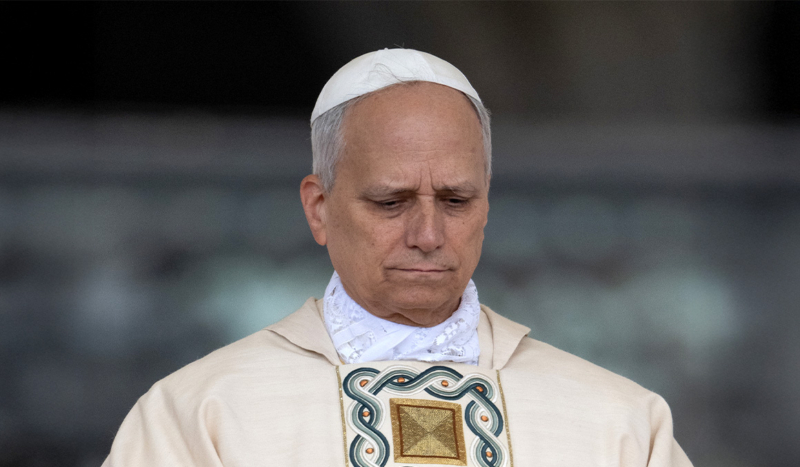
Catholic Church England and Wales / Flickr
In a June 30 address, Pope Leo XIV denounced weaponizing hunger and purposefully starving civilians as ways of waging war.
Speaking to participants of the 44th Session of the United Nations Food and Agriculture Organization (FAO) Conference, Pope Leo emphasized that food insecurity, malnutrition, and widespread hunger remain prevalent issues in many countries.
He then turned to the issue of weaponizing this suffering: “On the other hand, we are currently witnessing with despair the iniquitous use of hunger as a weapon of war.”
“Starving people to death is a very cheap way of waging war. That is why today, when most conflicts are not fought by regular armies but by groups of armed civilians with few resources, burning land and stealing livestock, [and] blocking aid are tactics increasingly used by those who seek to control entire unarmed populations,” he said, noting that as a result, water supply networks and communication routes are the first military targets.
“Farmers are unable to sell their produce in environments threatened by violence, and inflation soars,” Pope Leo continued. “This leads to huge numbers of people succumbing to the scourge of starvation and perishing, with the aggravating circumstance that, while civilians languish in misery, political leaders grow fat on the profits of the conflict.”
Stating that “[i]t will not help to postpone a solution to this devastating situation,” he urged that people must not just speak but act to help those who are needy and suffering.
“In this respect, we must not forget that sooner or later we will have to give an explanation to future generations, who will receive a legacy of injustices and inequalities if we do not act wisely now,” Pope Leo said. “Political crises, armed conflicts and economic turbulence play a central role in the worsening of the food crisis, hindering humanitarian aid and compromising local agricultural production, thus negating not only access to food, but also the right to lead a life of dignity and opportunity.”
Those involved in such conflicts must dialogue with one another in order for a lasting resolution to be established, the Pope said.
“It would be a fatal error not to heal the wounds and fractures caused by years of selfishness and superficiality. Likewise, without peace and stability, it will not be possible to guarantee resilient agricultural and food systems, nor to ensure a healthy, accessible and sustainable food supply for all,” he said.
Noting the need for parties to dialogue and listen, he added, “There will be no shortage of obstacles, but with a sense of humanity and fraternity, the results can only be positive.”
In the address, he also spoke about the importance of using sustainable food systems as a remedy for ecosystems, disadvantaged communities, and those at risk of food insecurity.
“We are witnessing a huge polarization in international relations due to the existing crises and confrontations,” Pope Leo said. “Financial resources and innovative technologies are being diverted from the eradication of poverty and hunger in the world to the manufacture and trade of weapons.”
These focuses promote “questionable ideologies” and harm fraternity and social relationships, he said.
“Never before has it been more urgent than it is now for us to become peacemakers working for the common good, for what is good for all and not just for the few, who are always the same,” he continued. “To ensure peace and development, understood as the improvement of the living conditions of populations suffering from hunger, war and poverty, concrete actions are needed, rooted in serious and far-sighted approaches.
“We must therefore leave aside sterile rhetoric and, with firm political will, as Pope Francis said, ‘resolve conflicts and thus … foster a climate of reciprocal cooperation and trust for the sake of meeting common needs.’”
The Holy See is always open to helping facilitate dialogue and promoting the common good, Pope Leo said, especially for those suffering from hunger and for “those remote regions which cannot rise from their prostration because of the indifference of those for whom the exercise of unfailing solidarity should be an emblem of their lives.”
“With this hope, and as a voice for all those in the world who are stricken by destitution, I pray to Almighty God that your work may bear fruit,” he said, “and be of benefit to the underprivileged and to humanity as a whole.”

